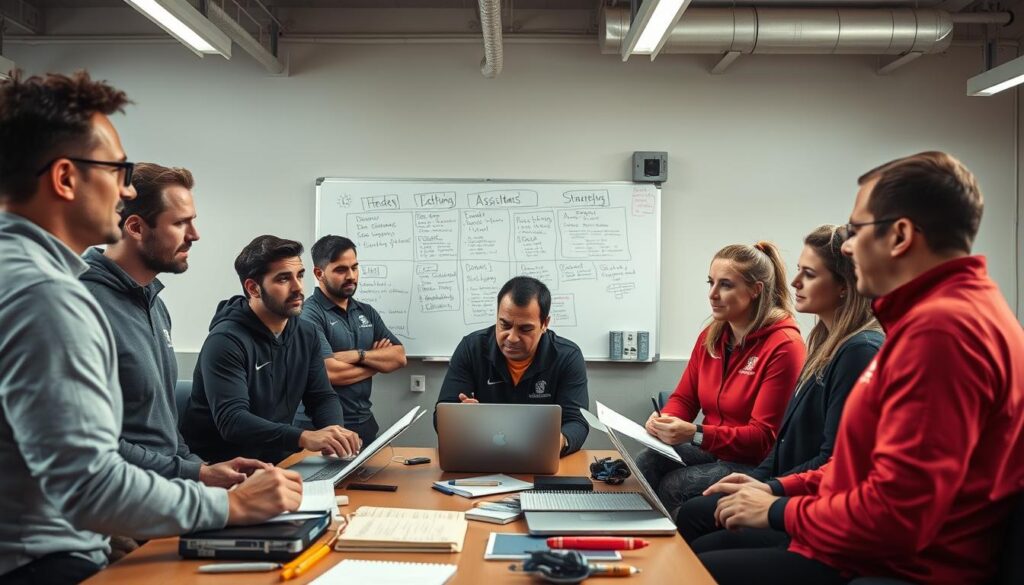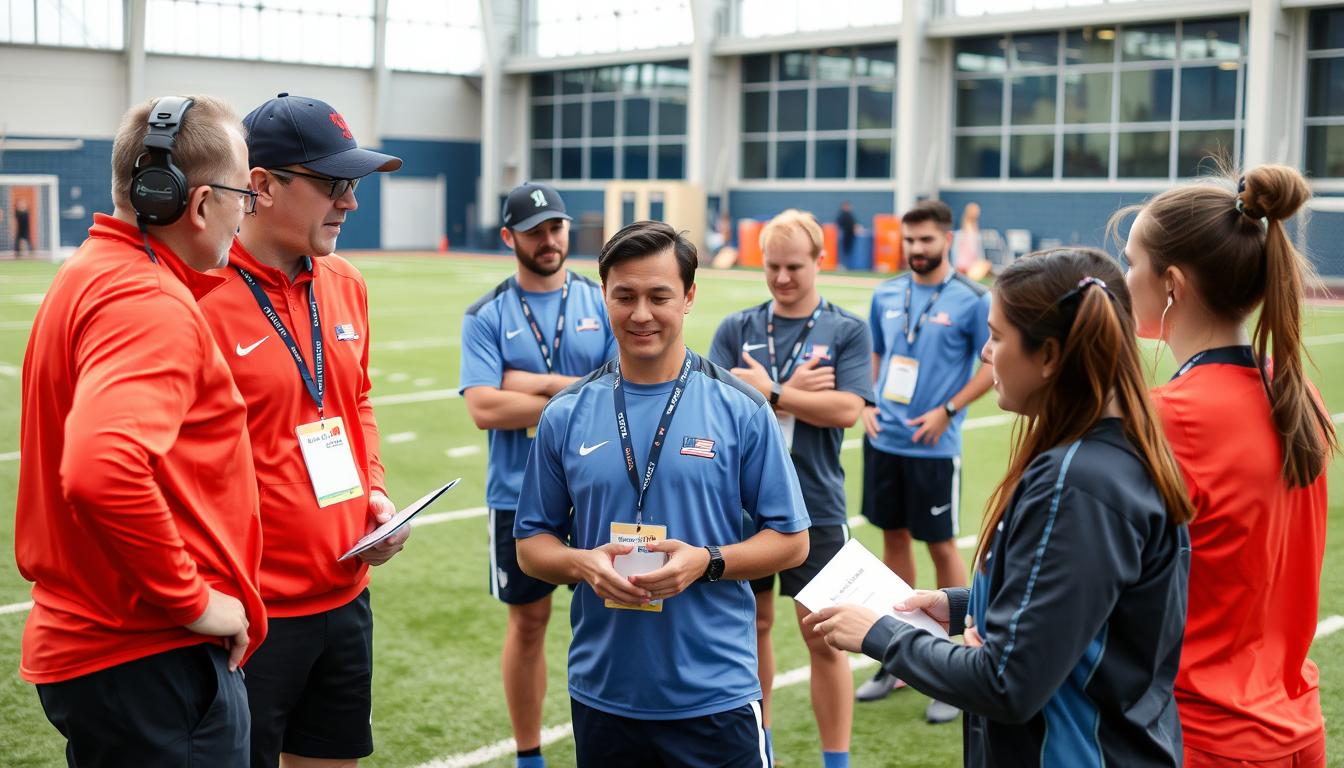Coaching success is more than just the head coach’s plan. Assistant coaches are the hidden gems that turn potential into real success. They play a key role in improving athletic skills and team work.
To help assistant coaches grow, we need a smart plan and careful guidance. The assistant coach improvement tips in this guide will help head coaches find and grow great coaching talent.
Top sports teams know that assistant coaches are key to better player skills, game plans, and team spirit. They focus on improving each player, which helps the whole team do better.
Key Takeaways
- Assistant coaches are vital for team growth
- Specialized training boosts performance
- Good mentorship and communication are key
- Learning opportunities prepare them for leadership
- Great assistant coaches boost team spirit and motivation
Essential Qualities of Successful Assistant Coaches
Assistant coaches do more than just help. They are key to a team’s success. They bring skills and views that make the team better. Knowing what makes a great assistant coach can change how a team works and wins.
Great assistant coaches have important traits. Supporting them well means knowing these traits.
Building Strong Communication Skills
Good communication is the base of coaching. Wayne Goldsmith says,
“Communicate – communicate – communicate”
. Tips for improving as an assistant coach often start with better communication.
- Practice active listening
- Give clear, helpful feedback
- Change how you talk to fit each athlete
- Talk openly with the head coach
Developing Adaptability and Flexibility
Being adaptable is what makes a coach stand out. Nabil Murad says it’s like being a chameleon. Being flexible helps coaches deal with surprises and help the team reach its goals.
- Adjust to changes in the team
- Change training plans fast
- Support the head coach’s plans
- Learn from different coaching experiences
Maintaining Professional Relationships
Good relationships are the heart of coaching. Assistant coaches need to be friendly but also keep their distance. Studies show that support from assistant coaches can boost athlete confidence by 30%.
By having these key qualities, assistant coaches can lead big changes. They help the team win and athletes grow.
How to Help Assistant Coaches Be Better

Helping assistant coaches grow means using a smart plan. This plan helps them get better and reach their full potential. The head coach is key in making a team work well together.
Good teams talk clearly and respect each other. Assistant coaches help the head coach and add their own ideas to improve the team.
“Great assistant coaches are not just support staff, but key strategic partners in achieving team excellence.”
- Give them big tasks to learn and grow
- Give feedback that helps them get better
- Help them learn new things
- Make sure everyone can talk openly
Assistant coaches need to keep learning and getting better. They should stay up-to-date with new sports science methods.
| Coach Development Strategy | Key Actions |
|---|---|
| Skill Enhancement | Attend workshops, pursue certifications |
| Strategic Learning | Study new coaching ways |
| Performance Tracking | Check how they’re doing often |
When head coaches help their assistant coaches grow, they make a strong team. This helps the team do better and everyone gets better.
Conclusion
Helping assistant coaches grow is key for head coaches in sports. It’s about investing in their skills and personal growth. Professional coaching resources show how important it is to support their talent.
Improving assistant coaches means more than just knowing the game. With 60% of coaches feeling burned out, they need support. Head coaches should help them handle stress and find time for themselves.
Good coaching teams have respect, shared goals, and always learn more. Accountability and growth are crucial for success. Studies say the right support can boost coaching by up to 30%.
Investing in assistant coaches helps the whole team. By supporting their growth, head coaches can make their teams better. This leads to success and growth in sports programs.

